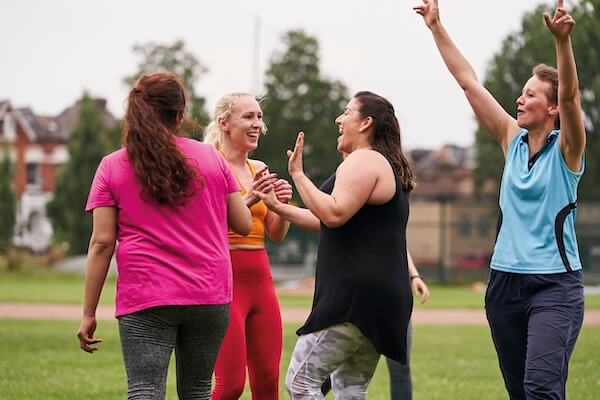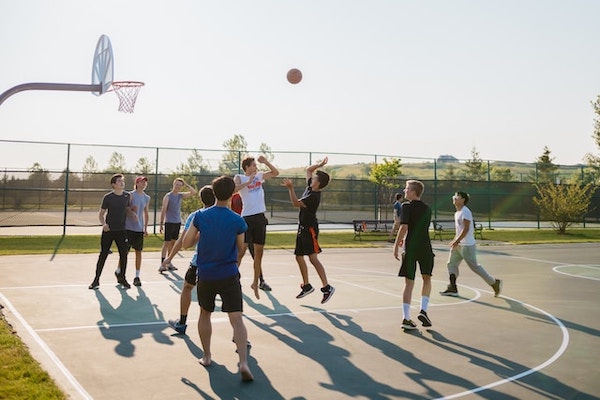
As an adult, it can be hard to build relationships. But that doesn’t mean you should give up hope! The key is understanding why it’s difficult and learning how to make friends as an adult. Fortunately, there are a number of ways you can start building new friendships as an adult. Even better? Once you begin making friends as an adult, they might just stick with you for life. Building new friendships as an adult isn’t easy—but it doesn’t have to be impossible either.
Here are some tips and tricks that could help you make friends as an adult.
Reserve a regular time for friends
Reserving a regular time for friends is an important aspect of
making and maintaining new friendships. It helps to establish a
sense of consistency and reliability in your relationships, which
is crucial for building trust and intimacy. When you consistently
make time for your friends, it sends a message that you value
their company and are committed to maintaining the friendship.
In addition to building trust, reserving a regular time for
friends also helps to create a sense of routine and structure in
your social life. This can be especially beneficial for people who
are naturally introverted or have busy schedules. By setting aside
specific times to see friends, you can ensure that you always have
social interactions planned and don't have to rely on spontaneous
invitations or last-minute plans.
Moreover, regular time spent with friends also helps to foster
deeper connections and intimacy. Over time, you will have more
opportunities to discuss a variety of topics, share experiences
and memories, and support each other through life's ups and downs.
This allows you to build a sense of closeness and understanding
that can help to strengthen your friendship and make it more
resilient over time.
It is hard to find time for friends when you have a busy lifestyle with work and family. But, finding time for yourself is equally important. If you have a partner, discuss with them and get their support. Maybe they can take the kids to the park or soccer runs, while you have a regular walk with a friend. Taking time for yourself and meeting friends will help you switch off from the daily grind and provide a support network. Another option is to work around your routine, like joining an early walking group, a lunchtime run club or a late evening badminton group.
Ask for what you want and what you like
Asking yourself what you want and what you like is essential to
making new friends because it allows you to identify and
communicate your interests, values, and goals. When you know what
you want, you can seek out people who share similar interests and
values. This will increase the likelihood of finding friends who
you can connect with on a deeper level.
Furthermore, being able to communicate your interests and likes to
others allows them to understand you better and can serve as a
conversation starter. It can also help you find common ground with
potential friends.
Additionally, knowing what you like and want can also help you set
boundaries and avoid friendships that may not be healthy or
beneficial for you. When you are clear about your values and
goals, you are less likely to compromise them for the sake of a
friendship.
In short, asking yourself what you want and what you like is
important to making new friends because it allows you to find
people who share similar interests, values and goals, helps you
communicate effectively and make more meaningful connections, and
helps you set boundaries and avoid friendships that may not be
healthy or beneficial for you.
It is also important to note that being true to yourself and what
you want is also important for your own personal growth and
well-being. Being around people who align with your values and
interests will not only make you happier but also more confident
in yourself.
Join a club or organization
Do you like to read? Are you passionate about photography? Do you love to travel? Or maybe you enjoy sports? There are millions of people who share your interests and hobbies. But do you know any of them? Probably not. You can change that by joining a community or club. Not only will you make new friends, but you’ll also be able to meet new people who share your interests.
Some example groups include: hiking groups, walking groups, casual cycling groups, anxiety support groups, board game groups, book clubs, movie clubs and photography clubs.
Some websites to try: KeepActive, Meetup and Facebook Groups (try searching by interest, suburb or city to find local groups). If you cannot find one, try getting one started. It may seem overwhelming at the start, but keep the group size small to keep it more manageable and increase your chances of making friends. With larger Meetup groups you may find it is hard to make regular friends as you tend to meet different people every time.
Try volunteering with local organizations
Volunteering with a local non-profit organization can be a great
way to get involved in your local community and meet
new people. Not only will you be helping people, but you’ll
also be making new friends while you’re at it. Volunteering can be
a great way to make new friends because it provides an opportunity
to work alongside like-minded individuals towards a common goal.
When people come together with a shared purpose, they are more
likely to form connections and friendships.
One of the benefits of volunteering is that it gives individuals
the chance to meet new people who share similar interests and
values. For example, if someone is passionate about the
environment, they may volunteer with an organization that focuses
on conservation and preservation. This gives them the opportunity
to work alongside others who are also passionate about this issue
and to form connections based on this shared interest.
Additionally, volunteering often requires individuals to work
together in order to achieve a goal. This can create a sense of
camaraderie and teamwork, which can foster friendships among
volunteers. When people work together, they are more likely to get
to know each other and to form connections based on mutual respect
and trust.
Another way volunteering can lead to new friendships is through
the sense of community that it creates. When individuals
volunteer, they are often working to improve their local community
or to help a specific group of people. This can create a sense of
belonging and connectedness, which can lead to friendships among
volunteers.
Finally, volunteering can be a great way to make new friends
because it provides opportunities for social interaction. Many
organizations hold volunteer events, such as clean-up days or
fundraising events, which provide an opportunity for volunteers to
get together and socialize. This can be an easy way to meet new
people and to form connections with others who are also passionate
about the cause.
Don’t Be Afraid to Make New Friends Online
One of the best ways to make new friends as an adult is by meeting people online. Social media has changed our world in so many ways, and it can help you make new friends as well. There are a number of online communities and forums where you can meet new people. Reddit is one of the most popular communities for this and allows users to create their own communities. There are tons of online communities where you can make new friends, and it doesn’t matter if you’re 18 or 60.
Don't be afraid to create a post stating you are looking for new
friends that share a certain hobby. You will get plenty of ideas
on local community groups to join and your post will help others
in the same situation.
Be persistent, but be yourself at the same time
Many people assume that it’s easier to make friends as an adult
than as a child. But that’s simply not the case. In fact, it might
be even tougher to make friends as an adult than it was as a kid.
It’s not just because adult life is busier and more
complicated—it’s also because so many people are hesitant to let
you into their circle. Persistence is important because it shows
that you are genuinely interested in getting to know someone and
building a friendship. When you are persistent in reaching out to
someone, it sends a message that you value their time and are
willing to put in the effort to get to know them.
At the same time, it is also important to be yourself when making
new friends. Being authentic and true to yourself helps to
establish trust and genuine connections with others. When you
pretend to be someone you're not, you run the risk of creating
false connections and relationships that are built on a foundation
of dishonesty. Additionally, when you are yourself, you attract
people who genuinely like and accept you for who you are, rather
than those who are drawn to a false image.
Ultimately, being persistent and being yourself go hand in hand
when it comes to making new friends. By showing genuine interest
and being authentic in your interactions, you are more likely to
build meaningful and lasting friendships.
Conclusion
Making friends as an adult can be a challenge, but it doesn’t have to be. A little persistence and a willingness to be yourself will help you make friends as an adult. Be persistent in your friendships, and don’t be afraid to ask people to be your friends. Join a club or organization, volunteer at a non-profit, and don’t be afraid to make new friends online.
Share your tips and inspire others
Got a tip on how to make friends as an adult or a story to share? Join the KeepActive Facebook group or tag us on Instagram or Facebook to share your tips or story. There are a lot of people unsure about starting their fitness journey or meeting strangers, seeing stories and photos from other people can inspire others to take their first step.






